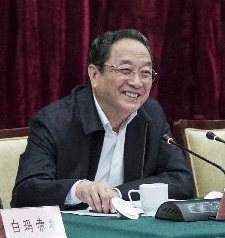Top political advisor Yu Zhengsheng has returned from a six-day “inspection tour” around Lhasa which took place on August 1-6. He is the Chairman of the National Committee of the Chinese People’s Political Consultative Conference, and the member of the Standing Committee responsible for Tibetan Affairs.
people.com.cn – described as the leading key news website in China – reported that during his visit Yu said development remains “fundamental and key” to addressing all issues related to Tibet, and spoke of “achieving leapfrog economic and social development in Tibet and long-term stability”. He was reported as promoting efforts to rule Tibet by law and to seek a regional development path with Chinese and local characteristics.
people.com.cn reported that during his talks with Buddhist monks and religious officials, Yu rejected the Dalai Lama’s proposal for a high degree of autonomy for all Tibetan-inhabited areas, saying that it “runs counter to China’s Constitution, the law, and the fundamental interests of Tibetan Buddhism”, adding that the monks he was addressing should “have a clear understanding of the secessionist nature of the Dalai Lama clique and resolutely safeguard national unification, ethnic unity and Tibet’s harmony and stability.”
There are suggestions that the infrastructure developments proposed for Tibet are needed to cater for the 5 million Chinese visitors expected this year. The government in Beijing markets Tibet as the ultimate “indigenous” spot for Chinese tourists, and the revenue they bring could be used to justify the new Kardze Yading airport soon to open, and the major repairs to enable Bangda Airport in Chamdo to be reopened. However, in addition to providing transport for tourists the new airports also facilitate deployment of military troops in restive areas.
An unusual aspect of Yu’s visit is that it was not reported in the Chinese press, nor the local Tibetan press, until he was back in Beijing.





 Print
Print Email
Email